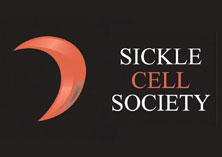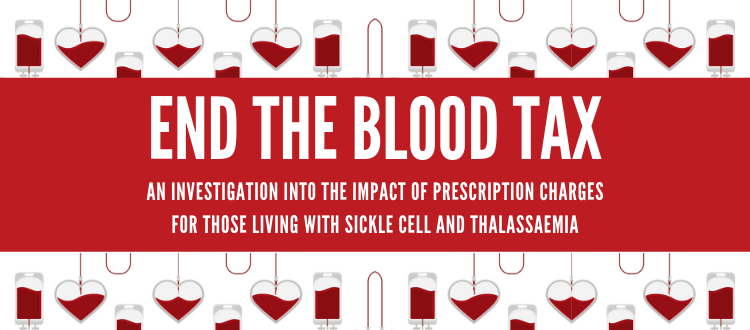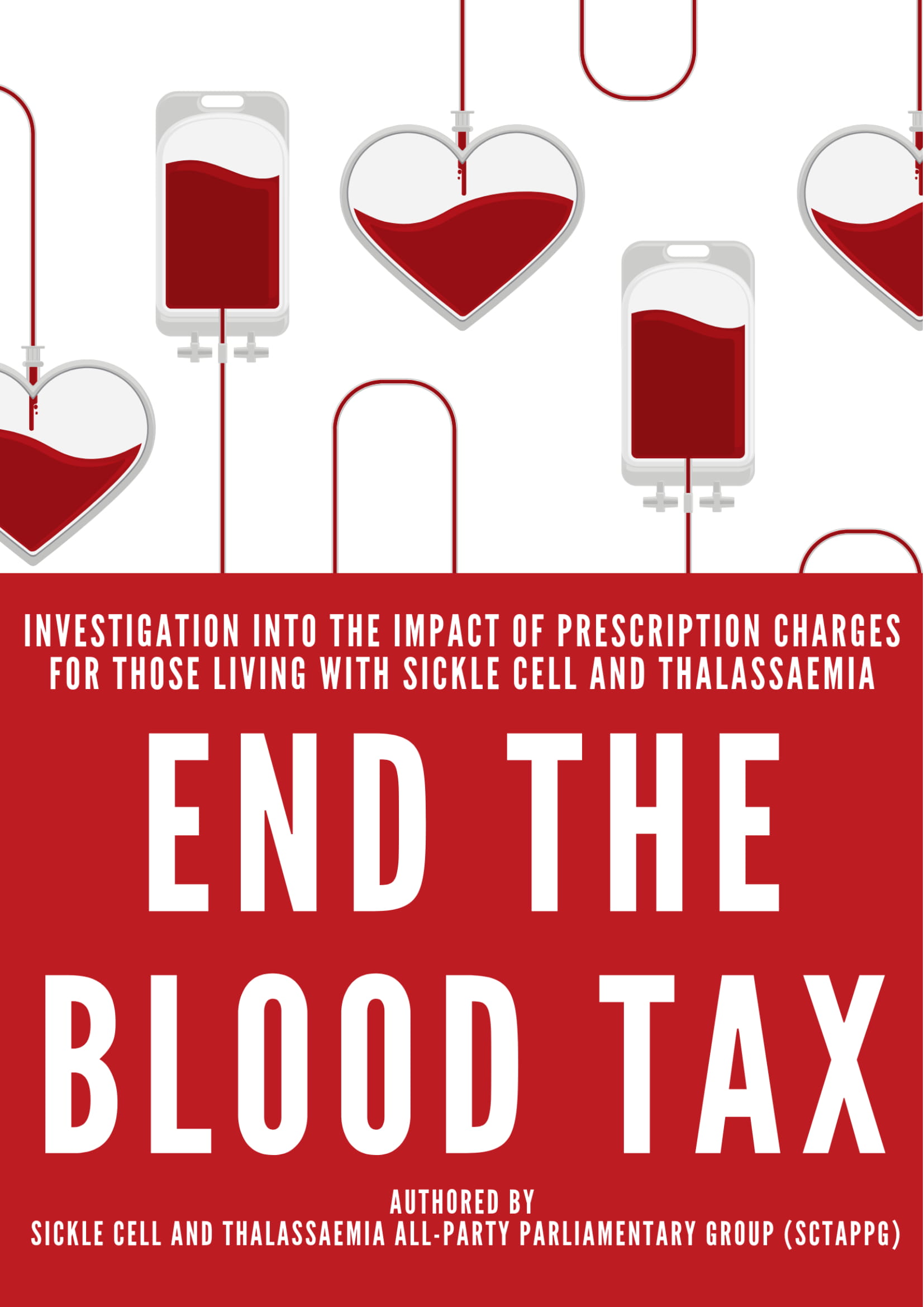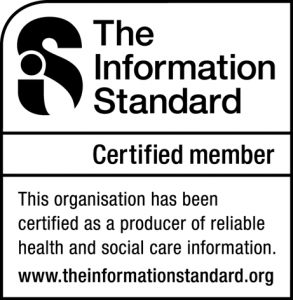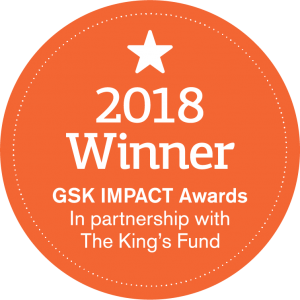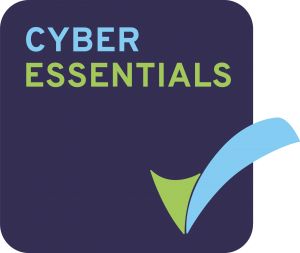End the Blood Tax – A Report
Sickle Cell Society releases new report into the impact of prescription charges for those living with sickle cell and thalassaemia.
‘End the Blood Tax’ is the latest report from the Sickle Cell and Thalassaemia All-Party Parliamentary Group (SCTAPPG) which investigates the impact prescription charges are having on people living with those conditions.
There are countless anecdotal reports from qualified nurses, doctors, other allied health care professionals and most significantly service users about the effect of prescription charges on the day-day lives of service users. This had provided an insight into the struggle and human cost that endless prescription charges present to those living with sickle cell disorder and thalassaemia. The SCTAPPG set out to research this area in the hope of shedding light on what is an effective tax on blood, and a tax on sickle cell disorder and thalassaemia. It will offer an insight into the real life experiences of those living with sickle cell disorder and thalassaemia and how prescription charges impact their daily lives.
The objective of the research is to enable our service users to have a voice in this debate and provide a condition specific analysis of how prescription charges affect their day-day lives. We hope this report can serve to add the mounting body of evidence, which is as clear as it is vital, to exempt those with long term conditions from these charges.

Key Findings
- 70.1% of respondents informed us that they had used either savings, an overdraft facility or a payday loan to be able to afford their prescription. This illustrates that the current situation is not sustainable, all three of these solutions have drawbacks. The use of savings acts as a penalty and fosters financial insecurity. Pay day loans possess extra exorbitant charges which only serve to rise indebtedness. It should not be the case that anyone shouldn’t be able to meet there most basic health needs, however currently this is how the system exists.
- Awareness of the prescription prepayment certificate (PPC) is quite high with 71.4% of those surveyed being familiar with its existence, however this still isn’t high enough. The 29.6% who aren’t aware are paying much greater prices they have to over the counter in the long term. The barometer of success of the PPC is only as good as how many people are aware of it and currently the NHS is falling short within the sickle call and thalassaemia communities.
- Despite awareness being moderately high, the questionnaire showed that take up was sluggish in comparison. 63.5% of respondents did not use the PPC which suggests that even in spite of our respondents being aware of them they weren’t utilising the facility. Moreover 44% of the cohort said they couldn’t afford the cost of the PPC and 17% said that the PPC wouldn’t actually save them money. Clearly the PPC isn’t the magic bullet many believe it to be.
- 88% of respondents asserted that they either always or sometimes had difficulty with their prescription payment. This exists for both those who purchase the PPC and pay the £9 charge and illustrates that the system systematically causes stress and difficulty to those with sickle cell and thalassaemia. Furthermore, the consequence of it being difficult leads to people making cutbacks. For example, 87.7% of the cohort said they had to sacrifice leisure time in order to afford the prescription. This decrease in leisure activity can have negative effects on wellbeing and is directly caused by the burden of prescription payments. Even more worryingly around half of those who were questioned for the survey also disclosed that they’d been force to cut back on essentials for living such as bills and food. Finally, 16.7% of respondents had even delayed or cutback on rent payments to be able to afford medicine.
- Over half of the cohort (52%) revealed that they had infrequently or sparingly taken their medicine due to the cost. This is in direct contradiction of doctors’ orders who have clear advice on the most effective amounts of medicine. This illustrates the impact of burgeoning prescription costs and how people are being forced to choose between their health and their economic security. Moreover, people not being sufficiently medicated leads to strain on primary care services, therefore making this an economic as well as moral tragedy.

Recommendations
In view of the outcome of this survey, SCTAPPG make the following recommendations:
- SCTAPPG would echo the Prescription Charges Coalition’s recommendation and petition the Department of Health and Social Care (DHSC) to immediately grant exemption to sickle cell disorder and thalassaemia along with all other long-term health conditions.
- DHSC should honour the Gilmore review’s recommendation to shift to a definition “based on a broad definition of a long term health condition”, it however is ill-advised to endow the primary care giver the responsibility to cast judgment on whether exemption should be granted. As the risk of relying on the agency of GP’s could give rise to a heterogeneous application of this criteria. DHSC should launch an independent review with service user engagement at the heart of its decision making to establish which conditions qualify as long term conditions and hence qualify for exemption. Subsequently, an annual review to widen and hence grant new exemption should take place.
- DHSC should be more be far more ambitious than the Gilmore review’s recommendations, and commit to the abolishment of prescription charges in the long term.
- In the meantime, NHS England should announce a new information campaign to raise awareness of the Prescription Payment Certificate (PPC). It is abundantly clear, however, that this is not the magic bullet as advocated as those who do know about it are still not in a position to afford it. It is described as a ‘season ticket’ but if your cash flow means you can’t afford a ‘weekly return’ then it serves no purpose. Consequently, it is imperative for an information campaign to be carried out in conjunction with a move to make PPC more affordable.
- The NHS Business Services Authority (NHSBS) offers a Direct Debit for a 12 month PPC – this is a commitment to pay all 12 payments without a break clause. This inflexible arrangement should be made to have a holistic exit clause.

Conclusion
The data suggests that the current system is not fit for purpose, our members are effectively being taxed for the blood they have and were born with. We are calling for an end to the blood tax. It is evident from the key findings that prescription charges are a having a seismic impact on the financial security of many. This in turn is having a discernible and verifiable effect on the wellbeing of service users. The dire and dangerous health consequences due to a lack of medicine adherence is in solitude enough of a reason to end this tax. A choice between financial security and quality of life should not be mutually exclusive. In effect the current prescription charge is a Hobson’s choice with no real choice but to pay this tax and hence for our members to be left in a precarious pecuniary state. The PPC does not offer enough of an avenue for service users to navigate their way through this dilemma. Ultimately, the economic analysis carried out on other long term conditions have added credence that an end to this regressive tax would ironically raise funds for the exchequer effectively paying for itself. A healthier workforce would mean increased productivity and decreased reliance on benefits, this in tandem with less additional treatment and fewer hospital admissions would translate into lower public spending. Prescription charges for sickle cell and thalassaemia patients are crucially significant as they tend to struggle to qualify for benefits as the requirements don’t seem to cater to disabilities that include intermittent asymptomatic states. As many patients are unable to work, this is an extra financial burden that enhances stress and anxiety which can only serve to worsen service users condition. If this burden can be lifted, it will aid our service users quality of life and ease the financial strain on those who may not be able to provide for themselves. We urge to the government to heed the calls of so many in a dire need of a helping hand, and end the blood tax.
The Report
Download the full report by clicking the image below or by clicking this link
